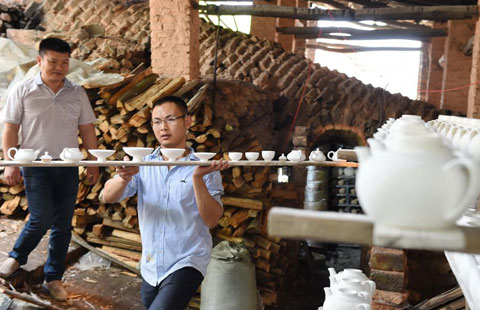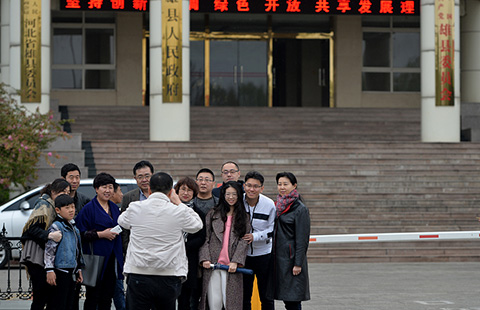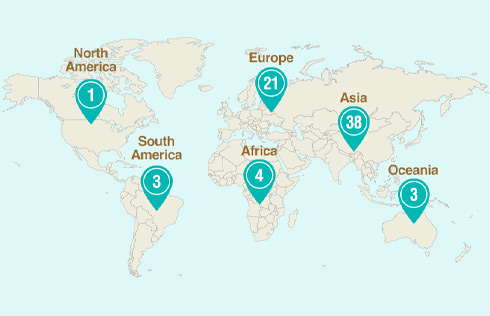Leather industry's revenue expected to see single digit growth
The revenue of the leather industry is expected to grow by a low single digit number and the decline of exports will slow down in 2017, experts said following the release of the Chinese leather industry annual report on Wednesday.
In January and February, the revenue of the domestic leather industry reached 192.6 billion yuan ($28 billion), up 5.6 percent since last year. The profit totaled 12.7 billion yuan, 2.8 percent higher than 2016, according to the report released by the China Leather Industry Association.
Experts said it shows a slow but steady recovery in the global leather industry after the slump last year.
The profit of China's leather industry in 2016 was 86.2 billion yuan, down three percent year-on-year, marking the first decline since 1998. The drop occurred in June 2016 and didn't see improvement by the end of 2016.
The shoemaking industry, making up 50 percent of the profit in the leather industry, saw a 0.4 percent decrease in profits. Meanwhile, the profit of fur apparel products dropped by 43 percent.
The report said online sales of shoes and bags grew faster than their revenue, showing the low pricing of online sales isn't good for the sustainable development of the industry.
The first two months also showed signs of recovery regarding exports and imports of the leather industry.
Export amounts in January and February reached $11.3 billion, a 1.1 percent decrease year-on-year, compared with the whole reduction rate of 11.3 percent in 2016.
Statistics show last year saw the first decline in exports in 20 years.
In 2016, China's two major markets of leather exports, the United States and the European Union, showed a 15 percent and 7.2 percent decline respectively.
The decrease of overseas demand, increase of costs and weakening of global competitiveness are some of the reasons behind the leather industry's struggles, according to the report.
Leather industry imports grew by 10 percent year-on-year to $1.33 billion in January and February, compared with the total seven percent decline in 2016.
Experts said the import of finished and semi-finished leather both dropped in 2016, suggesting the shrinkage of leather production in China. However they both grew in the first two months of the year, which is a good sign.
In 2017, the demand of leather in the global market will experience a slow recovery. Though the leather industry still faces problems, it's hopeful the future will see steady improvement, the report said.
Experts said the domestic leather industry should seize the opportunity of consumption upgrading to improve both quality and efficiency.

















